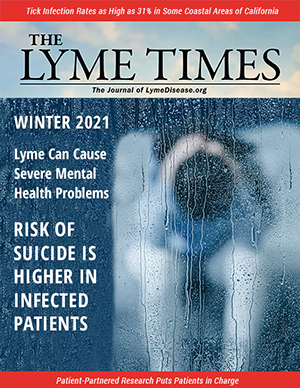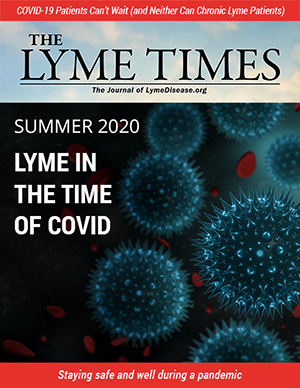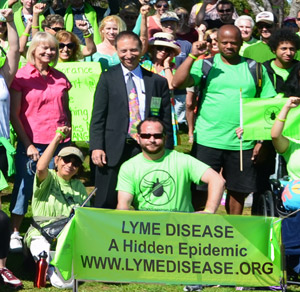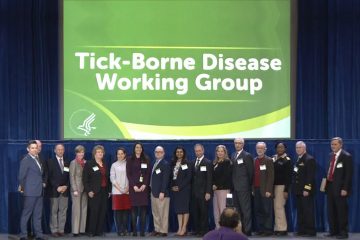 T ufts University researchers have received a $20.7 million grant from the National Institutes of Health (NIH) to try to answer some of the most vexing questions around chronic Lyme disease.
T ufts University researchers have received a $20.7 million grant from the National Institutes of Health (NIH) to try to answer some of the most vexing questions around chronic Lyme disease.
The collaborative team will lead the largest NIH-funded prospective study to date, following patients from their earliest diagnosis of Lyme disease in order to better identify why some people go on to develop debilitating symptoms later on.
While Lyme disease often resolves with a two-to-three-week course of antibiotics, some patients see symptoms persist for months or years. Despite decades of research, many of the fundamentals of post-treatment Lyme disease syndrome or chronic Lyme disease remain elusive.
There is no diagnostic test, clear definition, or specific treatment. There is no agreement on the mechanisms causing the condition or how frequently it occurs. It’s even difficult to calculate the number of cases. This is because symptoms such as fatigue, muscle pain, and cognitive impairments are similar to those reported for other conditions, including the flu, fibromyalgia, chronic fatigue syndrome, and long COVID.
“The underlying causes of chronic illnesses postinfection remain largely unknown because there isn’t something you can point to on a test to find what’s causing them. But people are tired, their muscles ache, and they can’t think clearly, so we know something is happening, we just can’t quantify it.”
The researchers believe that identifying patients at their earliest diagnosis of Lyme disease and following them for over one year could shed light on why some return to good health and others develop prolonged symptoms.
Study aims to enroll 1000 people with acute Lyme
The study aims to enroll 1,000 people with acute Lyme disease at suburban and rural community health centers in Lyme-disease-endemic areas in New England over five years.
 The research team is led by Linden Hu, an infectious disease specialist and the Paul and Elaine Chervinsky Professor in Immunology at Tufts University School of Medicine. He is an internationally recognized leader in the field of Lyme research.
The research team is led by Linden Hu, an infectious disease specialist and the Paul and Elaine Chervinsky Professor in Immunology at Tufts University School of Medicine. He is an internationally recognized leader in the field of Lyme research.
For nearly half a century, researchers from Tufts University and its affiliated teaching hospitals have been involved in many of the field’s seminal discoveries. They are currently engaged in multiple avenues of ongoing investigation into the cause, prevention, and potential cure of Lyme and other tick-borne diseases………..Join or login below to continue reading.




























